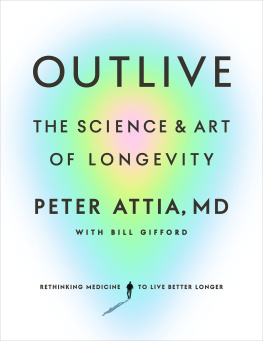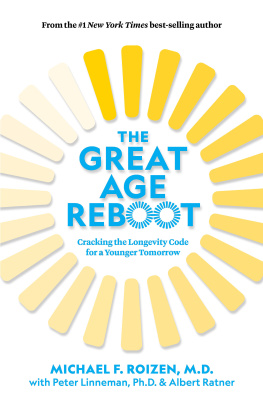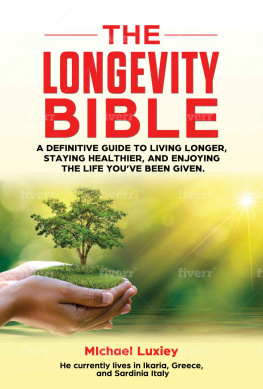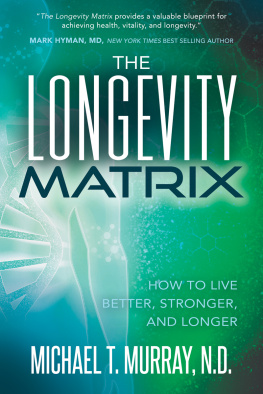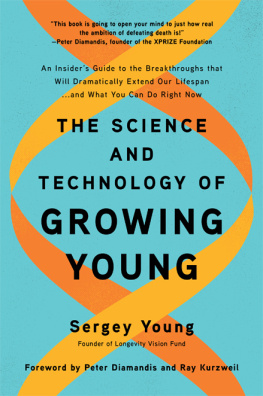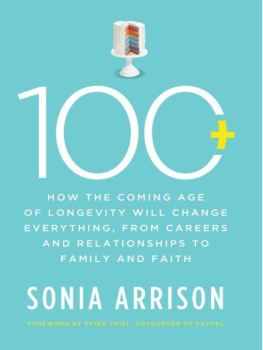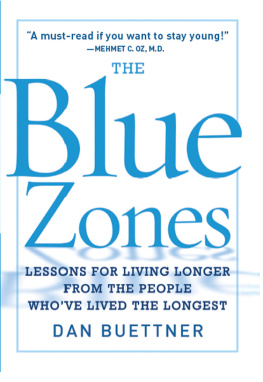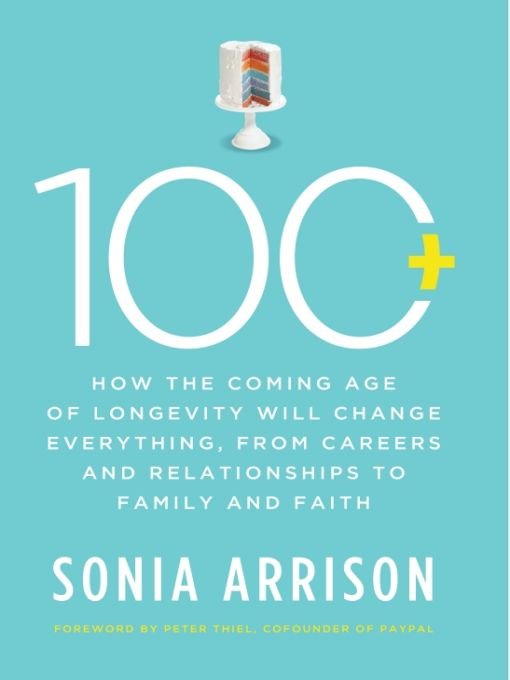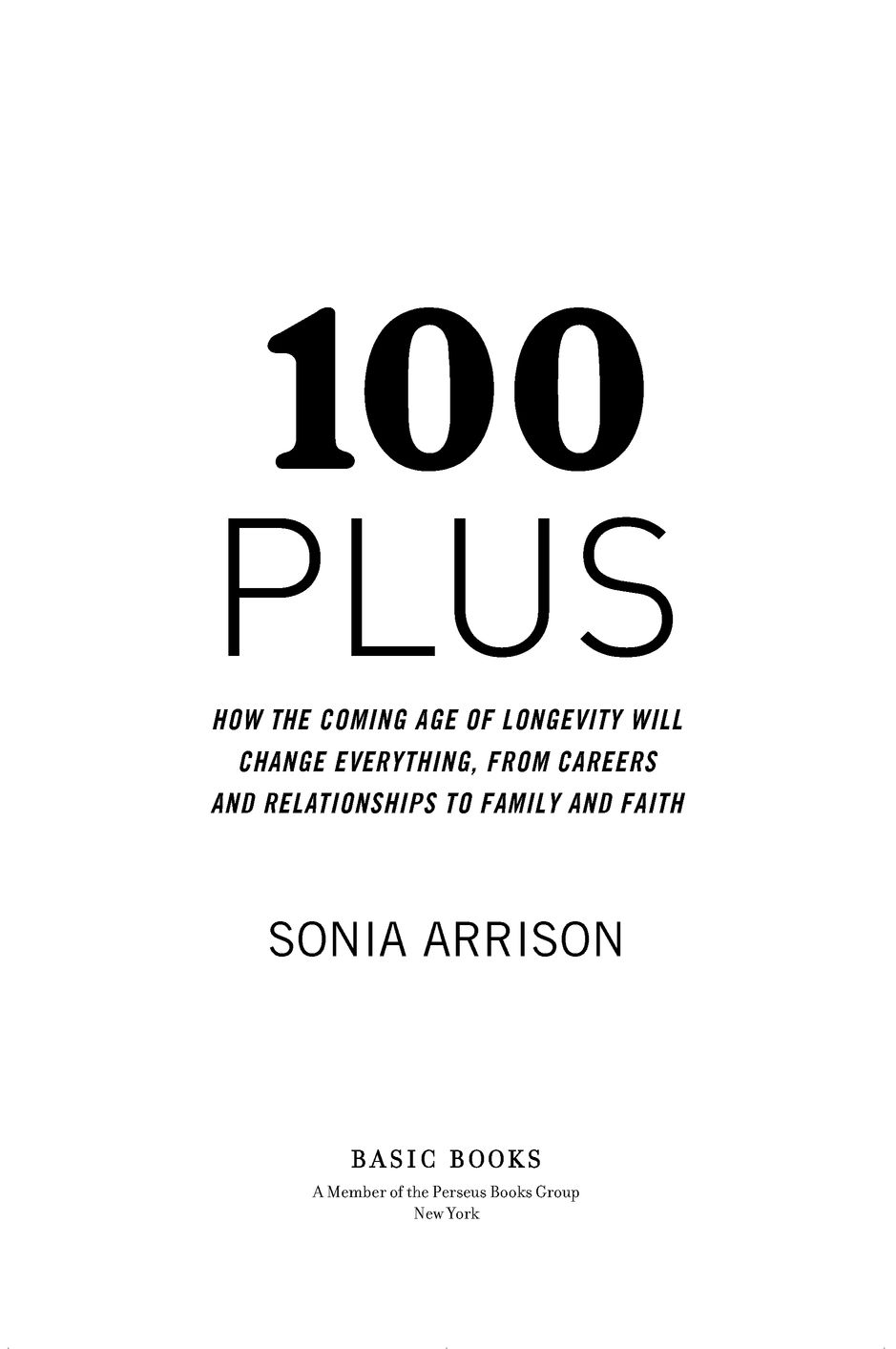Table of Contents
Also by Sonia Arrison
Telecrisis (editor)
Digital Dialogue
To my grandparents, Mollie and Ralph, who inspired this book. And to my husband, Aydin, and son, Henry, for their continual love and support.
Foreword
The Problem of Death
OVER THE WHOLE history of our world, about 100 billion human beings have been born to see and experience the wonder of life. Only 7 billion remain alive today. The rest have perished. One hundred thousand more pass away every day; the most common causes, at least in the advanced countries, are diseases related to aging. In 2011 fewer than 1 in 10,000 people lived to see their hundredth birthday. Euphemistically, these terrible things are called the facts of life. It would be far more accurate to call them the problem of death.
With piercing clarity, I still recall the day I first learned of the problem of death. I was three years old. I was sitting on a rug in the living room of my parents modest apartment in Cleveland, Ohio. I was at the age where I was asking my dad lots of questions.
Where did the rug come from?
It came from a cow.
What happened to the cow?
The cow died.
What is death?
It means that the cow is no longer alive. Death happens to all animals. It also happens to all people. It will one day happen to me. It will one day happen to you.
My father seemed sad as he was saying these things. I remember that it was a very sad and disturbing day for me. I did not want my dad to die. And the world seemed too happy and wonderful a place to leave.
But human beings are not cows. For present purposes let me mention one key difference: unlike the other animals, we have knowledge of death. The origins of language, of culture, and of religion can perhaps all be traced to that point in the distant past when our ancestors first acquired this terrible knowledge and needed to tell themselves stories to make sense of life and death. Every myth on this planet is an untrue story that tells people that the purpose of life is death. Nationalist myths tell us that it is sweet and fitting to die for ones country, ideological myths tell us that progress requires violence and that one must break some eggs to make an omelet, and religious myths tell us to worship the old, the ancient, and the spirits of the dead.
The crisis of the modern world is the crisis of mythology. We no longer believe in the old stories about life and death, but we also cannot go back to a time when we were not yet human and did not know about death. We cannot go back in time and become two-year-olds, and we would prefer not to be turned into cows. At the same time, we cannot simply deal with death as a fact of life. What we desperately need is a new storya true storyto help make sense of the world in which we find ourselves.

MY GOOD FRIEND Sonia Arrison offers a new story that makes more sense of the world by replacing solace with a challenge. From her perch as a technology analyst at the Pacific Research Institute in Silicon Valley, Arrison has been at the nexus of the future for the better part of two decades. Over the years the two of us have debated and discussed many of the cutting-edge questions in the technology world, but our conversations have always returned to the most important of questions: of how technology will change the balance between life and death.
Since the myths of the past and the present have been exposed, Arrison argues, we must follow the critical path forward: if we cannot forget or accept decline, then we must fight it and work to create a future no longer dominated by aging and death. The time has come for death to die.
Arrison began her work in public policy with a focus on computer technologies and the Internet, and it is perhaps worth highlighting the key difference between computer science and biological science, as traditionally understood: computers involve bits and reversible processes; biology involves stuff and seemingly irreversible processes. But computational power will soon be brought to bear on more and more domains, up to and including biological domains beginning with areas like genomics, protein folding, and modeling but culminating in a deeper understanding of life that will enable us to reverse all human ailments in the same way that we can fix the bugs of a computer program. Unlike the world of stuff, in the world of bits the arrow of time can be turned backward. Death will eventually be reduced from a mystery to a solvable problem. In this reduction we may hope that human life will achieve a new level of freedom and consciousness.
Arrisons book begins with a history of the many great men and women of the past who sought human longevity. She surveys the current generation of scientists and technologists who promise to usher in a new era, demonstrating that aging is a foe that can be hobbled and potentially even beaten. From here Arrison goes to the heart of things by directly confronting opposition to longer and healthier lives and outlining the extraordinary economic, social, and cultural changes that will happen as the world wakes up from history. Although Arrison considers a world where individuals will have their life expectancies extended to 150 years, the logic of her work leads to the more speculative question of the final conquest of death.
We may wonder whether triumph over death may also mean the end of science in the twofold sense of end as both culmination and termination. It will be a culmination because the end of aging and death would mean the final mastery of science over nature or chance. And it would also perhaps represent a termination because the greatest driver for scientific progress in the modern world will be no more. In the end, the Tree of Life may prove more desirable than the Tree of Knowledge, but for now we must begin with the latter to find our way back to the former.

QUESTIONS OF LIFE and death have vexed humanity for millennia. There is a tendency to respond to these questions with opposite (but strangely related) extremes of despair or complacency: we may despair of solving the problem of aging and give up, or we may become complacent about the problem of aging and so not try. To my mind, the most important aspect of the book involves the way in which Arrisons approach to the problemher incredible style, if you willcharts the substantive path forward to avoid these twin shoals. Let me end with a few thoughts on how to avoid each.
The most insidious form of despair makes a claim about naturethat aging and death are somehow natural or that all that lives must die, as Hamlets evil mother, Gertrude, rationalizes away the rottenness that is Denmark. Arrison dispatches this claim by reminding us that the very question of nature must be asked in earnest and answered with action. Properly, few things are less natural than not to rage against the dying of the light. The struggle against aging is therefore the most natural thing we could possibly do. It is the most humane, and the most human, of struggles. Arrison fights despair by urging us to become more like ourselves, to become more human than we already are.


